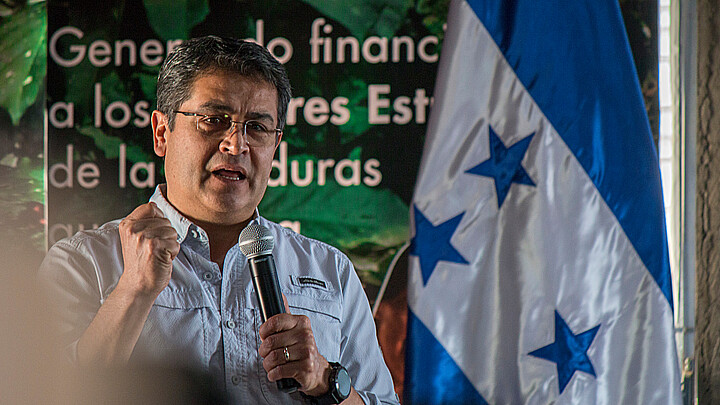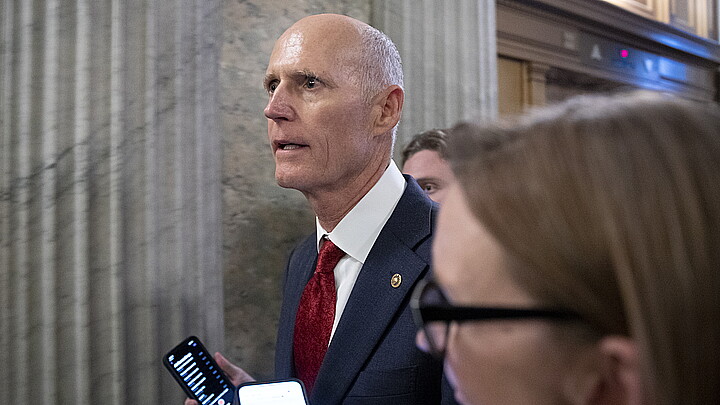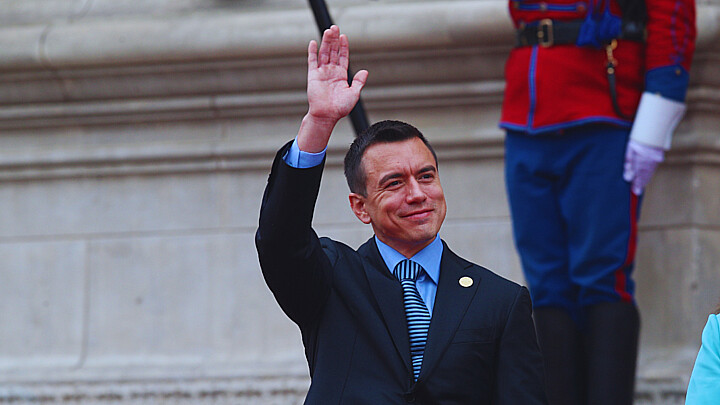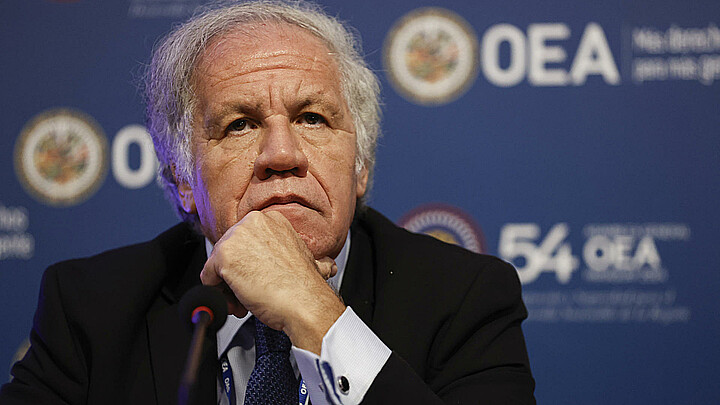Politics
Socialist poised to win in Honduran presidential contest
With three corrupt — and sometimes criminal — candidates on the ballot, Hondurans are preparing for more tough times ahead.
November 23, 2021 5:24pm
Updated: November 23, 2021 9:13pm
Hondurans will choose their next President on Nov. 28, testing the integrity of a democracy still reeling from the pandemic and two devastating hurricanes in 2020.
Polling in first place,Xiomara Castro, a former first lady and the nominee of the opposition LIBRE party, could make history as the first woman to lead Honduras since it declared independence from Spain in 1821.
Castro is a self-described democratic socialist and was the runner-up in the 2013 presidential election.
“This important act reflects the will of a people demanding unity, especially within the opposition, in order to defeat the dictatorship,” Castro said at a press conference.
Throughout her campaign, Castro has proposed important changes to the crisis-stricken Central American country, including the creation of a UN-backed anti-corruption commission, a rewriting of the constitution and switching diplomatic ties from Taiwan to China.
According to Brendan O’Boyle at Americas Quarterly, many Hondurans don’t trust Castro as a candidate and fear she might once again take the country in yet another wrong direction.
“For many, the self-described 'revolutionary' Castro would be far from a fresh start,” writes O’Boyle. “Before he was removed in a 2009 coup d’état, her husband had brought Honduras closer to Venezuela’s Hugo Chávez, and much of the business establishment still fears that the Zelayas want to pick up where they left off.”
But unfortunately, the alternatives to Castro don’t appear to offer Honduras the fresh start it so desperately needs.
Trailing behind Castro is Nasry “Tito” Asfura, the mayor of Tegucigalpa, whose National Party has been in power for the past 12 years, and Yani Rosenthal, a businessman who was sentenced to three years in prison after pleading guilty to a U.S. money laundering charge in 2017.
On Monday morning, Cuban-American Rep. Carlos Antonio Giménez Tweeted, “If convicted U.S. felon #YaniRosenthal and his crony leftist coalition win, we will see the destruction of democratic institutions in The Northern Triangle.”
Honduras is a crucial ally in stemming the flow of migrants illegally crossing the border.
— Carlos A. Gimenez (@CarlosGimenezFL) November 22, 2021
If convicted U.S. felon #YaniRosenthal and his crony leftist coalition win, we will see the destruction of democratic institutions in The Northern Triangle.
The stability of The Northern Triangle is especially important to the Biden Administration, which has repeatedly discussed the need to address the “root causes of migration” in Central America, ultimately committing $4 billion to that end.
Ultimately, Hondurans seem weary of this year’s candidates and the democratic process in general.
According to a 2021 Latinobarómetro report, only 30 percent of Hondurans agree with the statement, “Democracy is preferable to all other forms of government,” showing the lowest level of distrust of democracy in Latin America.
As Hondurans head to the polls, they will surely remember that their country’s GDP fell by 9 percent in 2020 and that nearly a third of the population faced severe hunger in early 2020.
With no solid candidate that is truly representative of change on the ballot, Hondurans must surely wonder what's on the horizon.
"Among the possibilities, perhaps the most likely outcome of a Castro government is a sort of stalemate with a divided Congress and without the fiscal resources to enact big changes to the status quo," said O'Boyle.
After 12 years of one party, “Honduras needs an alternation in power,” said Dr. Rolando Sierra Fonseca, the director of FLACSO Honduras. Ultimately, that's all one can hope for now.










